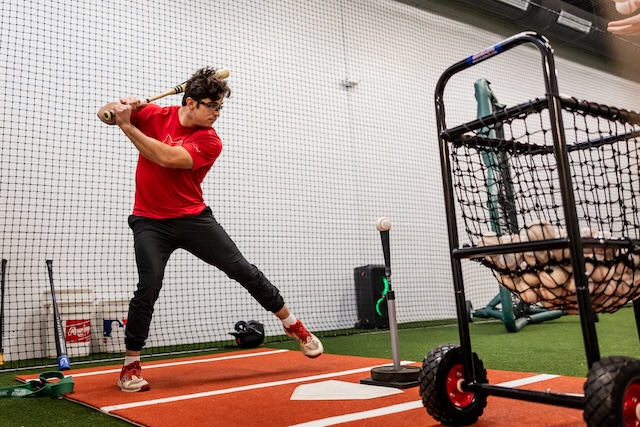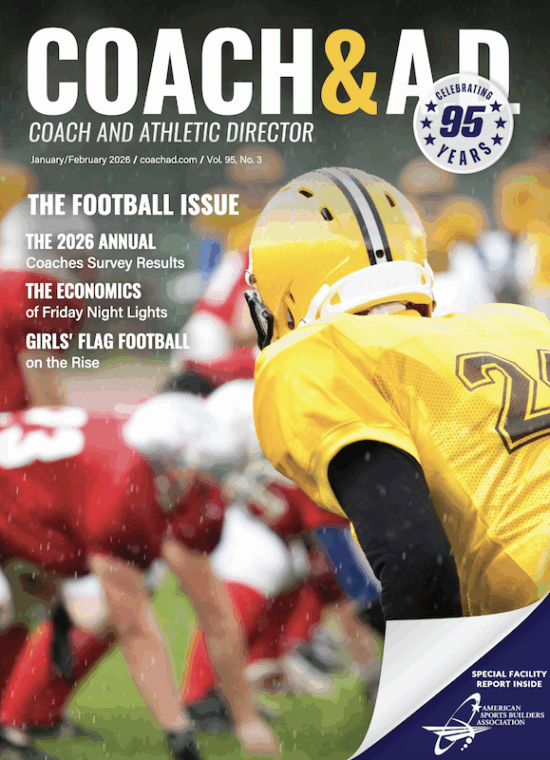11 attributes of effective athletic administrators
As all coaches know, effective athletic administrators can make your job measurably easier and a little less stressful, while poor athletic administrators can be a nightmare to work for and a big reason you leave.
 Here are the top 11 attributes coaches respect in an athletic director, listed in reverse order of how frequently the qualities were mentioned in a survey I conducted of my newsletter readers.
Here are the top 11 attributes coaches respect in an athletic director, listed in reverse order of how frequently the qualities were mentioned in a survey I conducted of my newsletter readers.
11. Visible.
Coaches want athletic directors who are actively and visibly involved with the department. They want athletic directors who are at their games and contests as much as realistically possible to show their interest and support for them and the team. Coaches and athletes want to see their athletic director in the halls and on campus rather than sitting isolated in an office behind a desk all day long.10. Vision for the program.
Coaches want their athletic director to develop and communicate an inspiring vision for the program. They want an athletic director who has the ambition to set high goals for the department, and the enthusiasm and dedication to pursue them.
For example, one college athletic director I had the privilege to work with set the goal of being one of the nations top 25 overall athletic programs as ranked by the Directors Cup, and graduate at least 75 percent of their student-athletes. This challenging yet inspiring vision gave the department a clear goal to shoot for and motivated them to achieve such an elite status.
9. Provides coaches with feedback and holds them accountable.
Because most people crave feedback on their performance, coaches also want to be evaluated by their athletic directors. They want to know when they are doing well and when they might need some help. Coaches want someone who recognizes and rewards good performances and addresses poor performances by staff.
Coaches also appreciate athletic directors who encourage them to develop their coaching skills by attending clinics and getting books and videos. In cases of repeated poor performances, coaches want athletic directors who have the courage and conviction to hold their colleagues accountable. Occasionally, this means getting rid of some poor coaches in the department.
8. Solicits and acquires the funds and resources necessary to be successful.
Coaches also expect their athletic director to provide them with the proper funds and resources to compete and be successful. As much as possible, coaches want the kind of funding, facilities, programming and resources to at least keep pace with the competition. They want an athletic director who is well-connected on campus and in the community to secure the proper political and financial support for the athletic department. They want someone who can tap into and effectively utilize the various financial resources available.
7. Have coached or clearly understand the demands of coaching.
Coaches want an athletic director who clearly understands the demands, frustrations and pressures of coaching. They want someone who has experienced losing seasons, untimely injuries, irate parents and all the other challenges of the job. Many coaches indicated they wanted their athletic director to be an athletics person versus an administrator type.
 6. Organized.
6. Organized.
With the myriad sports teams, schedules, travel needs, budgets and paperwork, athletic directors (and their administrative assistants) must be well-organized to do their jobs effectively. Coaches want their athletic director to be on top of things and to take care of many of the logistical details involved with schedules, game management and other bureaucratic issues.
5. Communicator.
Coaches want someone with solid communication skills who keeps them up-to-date with the latest information. They also want an athletic director who communicates effectively with the people in the school and in the community to present a positive image of the program.
4. Honesty and integrity.
Just as honesty and integrity are key in a coachs ability to gain an athletes respect, so too must athletic directors be honest and ethical with their coaches. Coaches respect athletic directors who stick to their word who follow through on what they promise they will do. They respect athletic directors who play by the rules and keep the best interests of the athletes on the forefront of their minds at all times.
3. Fair to all sports.
Coaches want their athletic director to care about all the sports and treat them fairly. Many coaches expressed their frustration with athletic directors who give blatant, preferential treatment to the revenue-generating or highly visible sports teams. Other coaches felt that their athletic director favored the coach or team of the sport that he or she once coached and continually gave the short end of the stick to the sports the athletic director didn’t like or respect.
2. Available to listen.
Coaches want their athletic director to be available to listen to them. They want to be able to drop by and talk without having to make an appointment. Sometimes, coaches just need to vent to their athletic director when dealing with player or parent problems. Other times, they want their athletic director to offer suggestions and a sense of perspective on the situation. Coaches want to know that their athletic director is available to them when they have ideas, problems and suggestions.
1. Supportive.
Not surprisingly, the No. 1 quality that coaches want from their athletic director is support. Because coaches are constantly being judged, critiqued and second-guessed by nearly everyone (athletes, parents, media, alums, etc.), coaches want to know that they have their athletic directors support when they deserve it.
Coaches also want support and encouragement when dealing with the inevitable losses, slumps and heartbreaks that occur in every season. Finally, coaches want support from their athletic directors when they have suggestions and new ideas to try with their program. Rather than telling them it wont work, coaches appreciate the latitude and encouragement to try something new that could make a big difference in the programs.
Note to coaches: Thank your athletic director if he or she is solid on each of these 11 attributes. If not, tactfully suggest your boss read this article.
Note to athletic directors: Invest the time to rate yourself based on these 11 qualities. Congratulate yourself for your strengths and seek to develop your areas for improvement. If you really want to get some honest and effective feedback, have your coaches anonymously rate you on these 11 qualities to see how you measure up. It might be a little scary to open up yourself to their critique, but you are certain to receive some extremely valuable feedback on how you are doing. Accept the challenge to develop, grow and improve yourself as much as you expect your coaches to do the same.
For more info on Jeff Janssens resources for coaches and athletes visitwww.jeffjanssen.com.
2 thoughts on “11 attributes of effective athletic administrators”
Leave a Reply
You must be logged in to post a comment.






Great article and points that any AD should live by. So many Administrators are never given any formal education of what it takes to be in a Leadership Roll.
Fantastic article. This would be great to give to the administrators that hire Athletic Directors since they usually are not aware of all of the responsibilities of an AD.